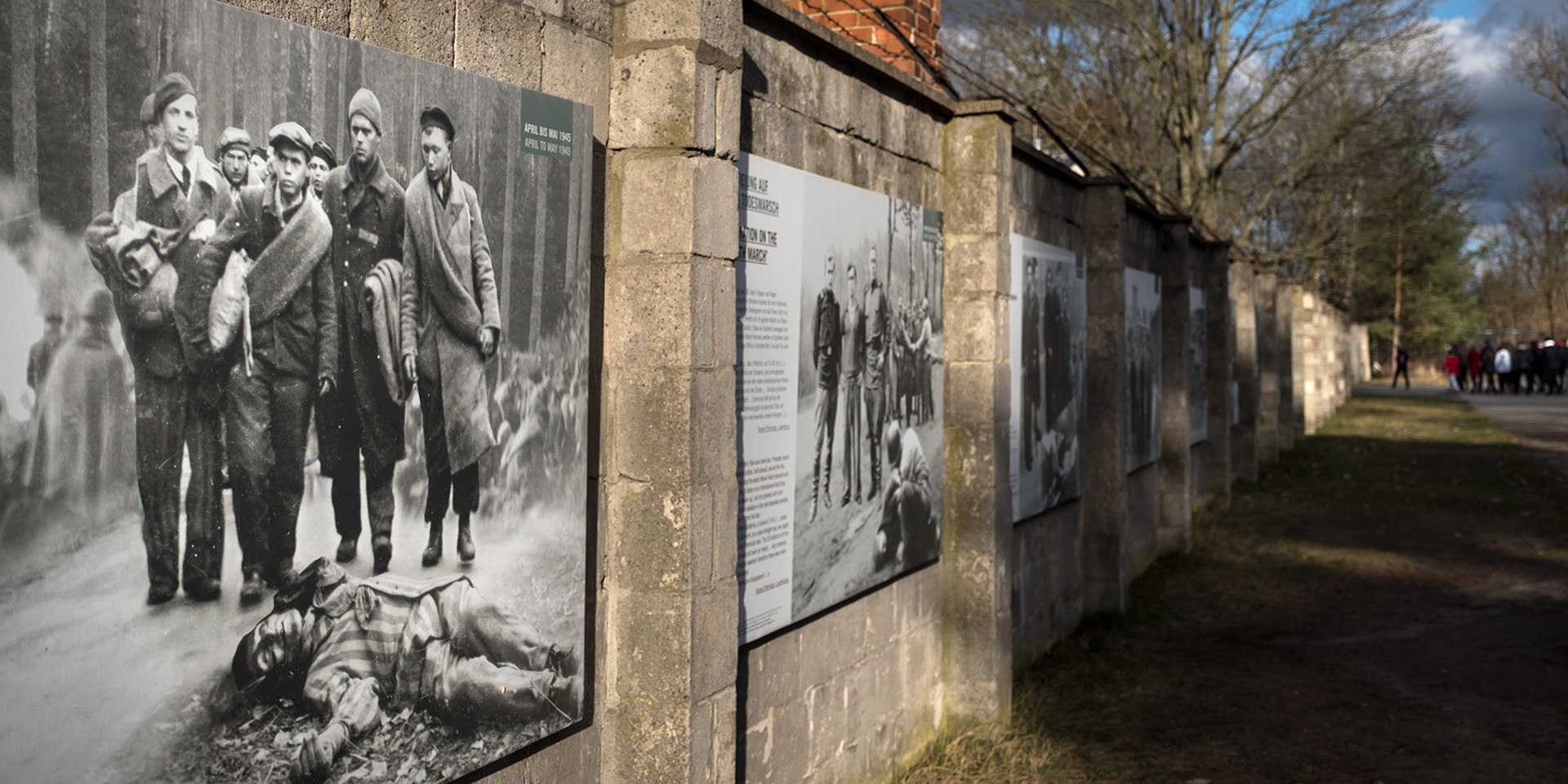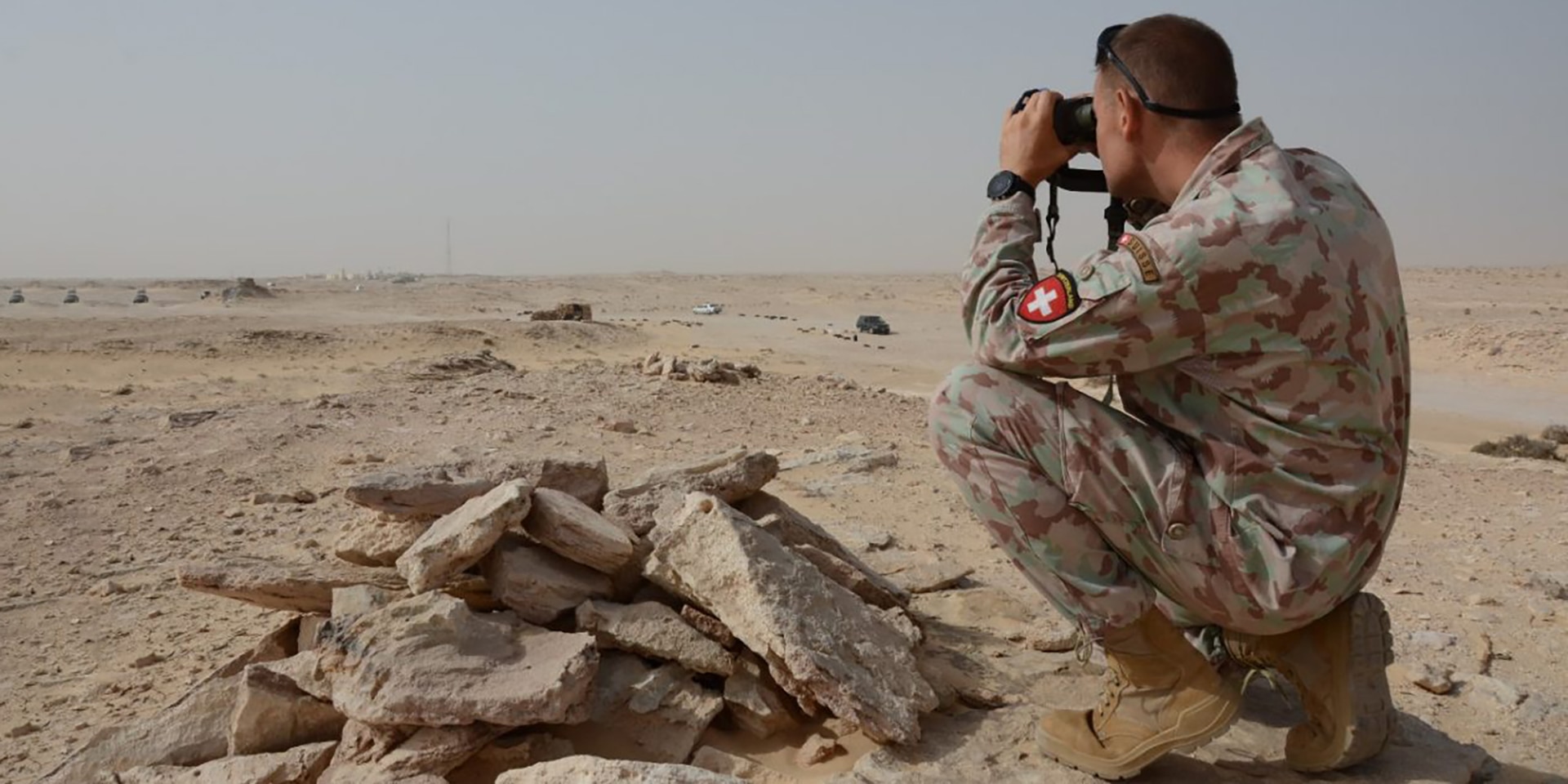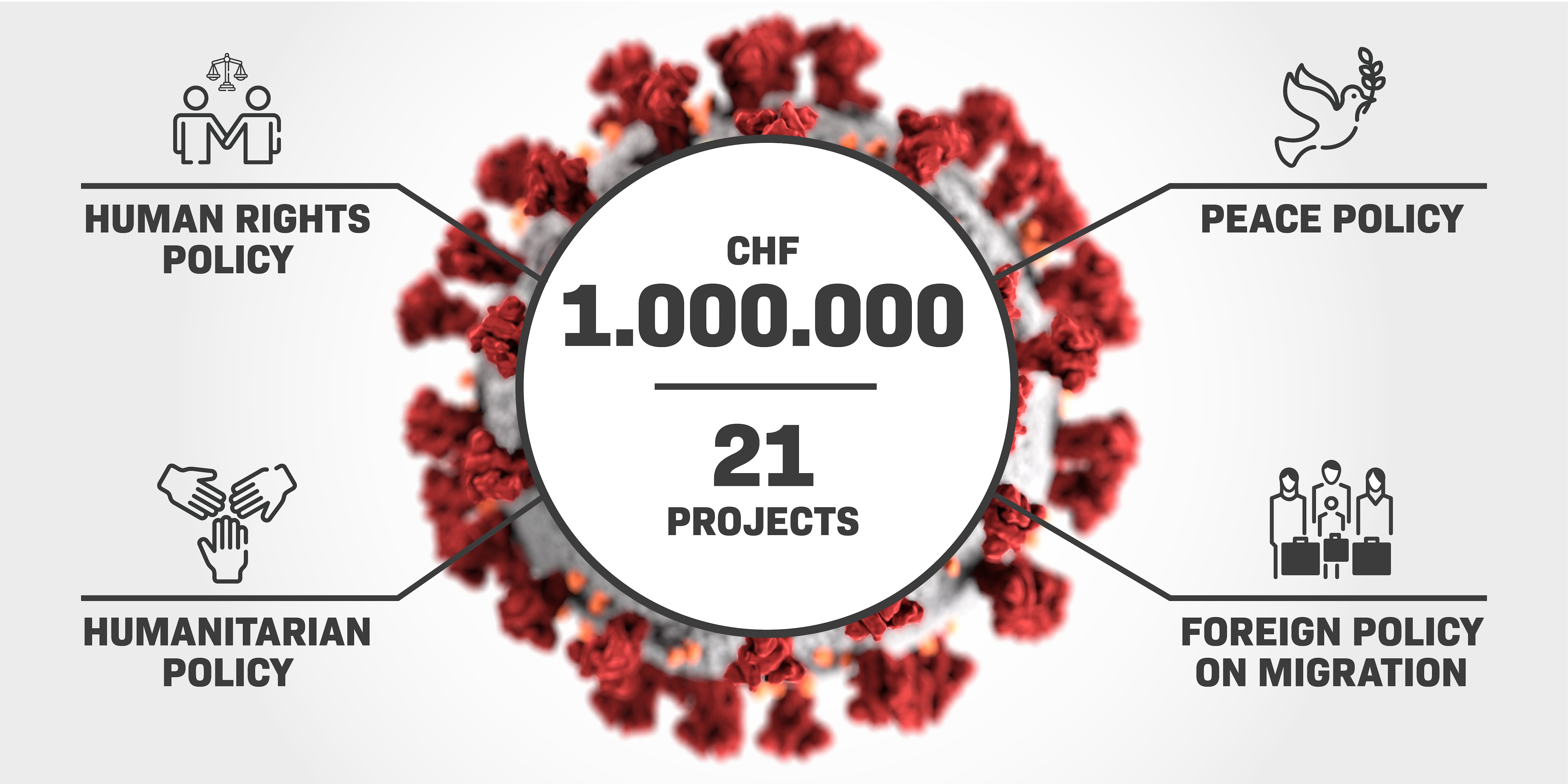Code of conduct obliges private security companies to respect human rights
The International Code of Conduct for Private Security Service Providers (the "Code of Conduct") was launched 10 years ago. It obliges private security service providers to respect human rights and international humanitarian law and to prevent their violation. Switzerland was influential in creating the code of conduct and is head of its supervisory board. As a neutral stakeholder it encourages dialogue between private security companies, states and NGOs, as well as a range of Observers including multinational companies.
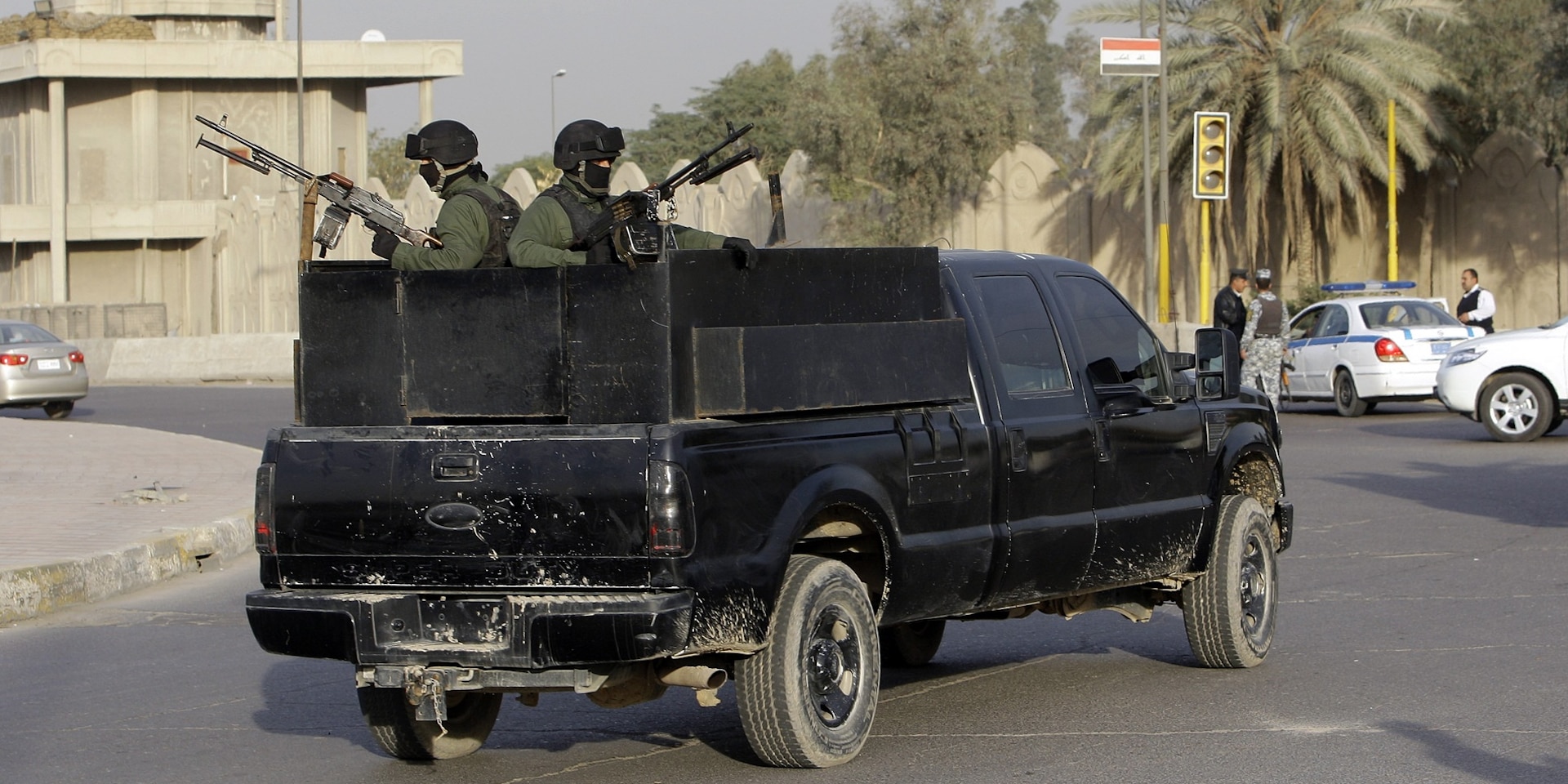
The International Code of Conduct obliges private security service providers to respect human rights and international humanitarian law in their activities. © Keystone
On 16 September 2007, employees of a private security company carried out a massacre in Nisour square in Baghdad. While escorting a military convoy, they opened fire with armour-piercing ammunition on civilian vehicles. Within a matter of seconds, 17 Iraqi civilians were killed in the barrage of gunfire.
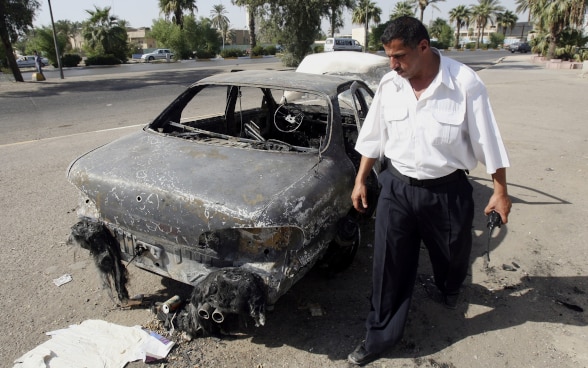
This and other incidents, carried out by private military contractors and security companies during the conflicts in Afghanistan and Iraq, led to strong reactions from the international community. Calls were made for the international regulation of the private security sector, which by the nature of its work often operates in legal grey areas in violent conflicts or in fragile situations. In response, Switzerland and the International Committee of the Red Cross (ICRC), launched a diplomatic initiative known as the Montreux Document. The Montreux Document reaffirms the international legal obligations of states regarding the activities of private military and security companies active in conflict zones. The Montreux Document reflects the consensus that international law is also applicable to private military and security companies and that they are not operating in a legal vacuum.
The emergence of the International Code of Conduct for Private Security Service Providers
The Montreux Document formed the basis for the International Code of Conduct for Private Security Service Providers. This is the first international document and in 70 articles it outlines legal obligations and good practices for the personnel of private military and security companies. The rules of conduct it contains specify the companies' obligation to respect human rights, in particular regarding the use of force, detention, prohibition of torture, sexual abuse, human trafficking, forced labour and prohibition of discrimination. The Code of Conduct stipulates, for instance, that force is to be used exclusively in the self-defence of private security company personnel, for example in the event of escalating demonstrations and aggression towards security personnel or innocent bystanders where de-escalation efforts have failed. Private security companies can also use an appropriate level of force, for example if a property they are guarding is subject to burglary, theft or criminal damage. Furthermore, the code of conduct contains a series of provisions on company policy on personnel recruitment, working environment or weapons management.
Since the launch of the Code of Conduct, some 100 private security companies have pledged their adherence to the code by becoming members of the International Code of Conduct Association (ICoCA). These companies are active in various sectors. They protect diplomatic missions and NGOs in their humanitarian work, are helping to manage the COVID-19 pandemic and provide security services to numerous businesses in their day to day work.
Control mechanism headquartered in Geneva
Following the Code of Conduct's introduction, businesses, companies and NGOS worked together to establish an independent management and control mechanism, provided for in the Code. This mechanism, the International Code of Conduct Association, was founded in 2013 and is an association under Swiss law with headquarters in Geneva. The supervisory board is comprised of four private security companies, four NGOs and four States that meet a minimum four times a year. Switzerland is one of these States, represented by the FDFA's Human Security Division (HSD). As a neutral State, Switzerland plays a central role in discussions, supporting causes consistent with its fundamental values.
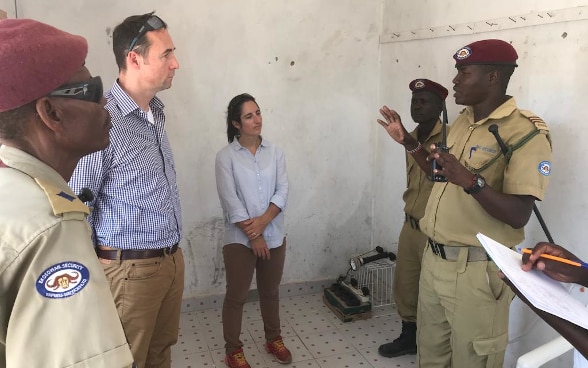
At these meetings the Association elaborates procedures for ICoCA certification, monitoring of security companies, assessment of services and processing of violations against the code of conduct. ICoCA certification for adherence to the code is currently in demand among private security companies because an increasing number of clients from the public and private sector require ICoCA membership from their security service providers. The Association is thus making an important contribution to the respect of human rights and international humanitarian law in regions affected by conflict or in fragile situations.
10 years of the Code of Conduct: A look at the past and into the future
In 2020 the International Code of Conduct for Private Security Service Providers celebrated its 10th anniversary. Some 160 representatives from private security companies, NGOs and governments will participate in this year's Annual General Assembly, starting on 30 November, to take stock of the past ten years and to see what the future holds. In her opening speech, FDFA ad interim State Secretary Krystyna Marty Lang will express appreciation of the change in attitude seen among many contracting clients towards the ICoCA certificate. "This positive trend is the result of a strategic change in many institutions that depend on the services of security companies. Like Switzerland, many clients today regard ICoCA certification as a prerequisite for awarding contracts."
Krystyna Marty Lang says that 100 members is already a considerable number but there is potential for more. "We must all continue to require security companies to be ICoCA members and encourage our partners to do the same," emphasised the state secretary.
In the coming days, the Annual General Assembly will provide participants with a platform for discussing the challenges of the future. The focus will be on new technologies such as drones and their use by private service providers and the protection of privacy. Absorbing the financial consequences of COVID-19 for the private security service provider sector will also be discussed.
Raising awareness, lawful arms purchases and vetting of personnel
Switzerland has supported the ICoCA since its foundation in 2013 and chairs the supervisory board. The impact of the Association's commitment can be seen at different levels. In addition to its core task, monitoring adherence to the Code of Conduct, it is also active in the field. In field missions during conflicts in Iraq, South Sudan or in Nigeria, ICoCA representatives have met with NGOs and private security companies to raise awareness about the Code of Conduct and to monitor human rights conditions. The Code of Conduct stipulates, for example, that when purchasing or selling weapons, private security companies must ensure that weapons do not come from a criminal environment and that they will not be resold into criminal circles. The Code of Conduct also obliges companies to carry out an assessment when recruiting new personnel. This includes background checks on applicants to ensure they have no links to criminal structures, have not been involved in war crimes or committed any violation of human rights.
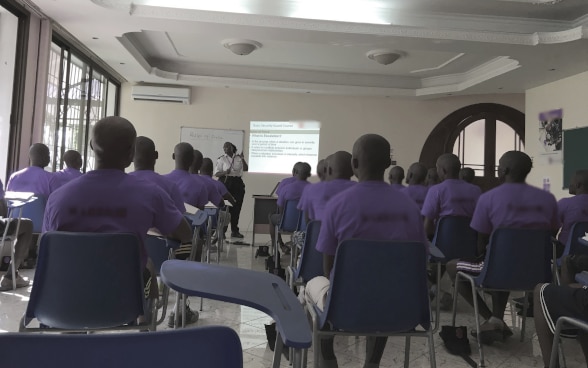
In addition to financially supporting the ICoCA, Switzerland is working with the Geneva Centre for Security Sector Governance (DCAF) to strengthen the role of civil society organisations in contributing to ICoCA’s work through the monitoring private security companies. For example, seminars have been organised with law enforcement agencies and civil society organisations in Nigeria, Peru and the Democratic Republic of the Congo. Amongst other things, participants are trained in the appropriate use of force in conflict situations.
The implementation of international obligations starts at national level
Switzerland is also active at national level. In 2015 it passed legislation requiring companies headquartered in Switzerland providing security services abroad to join the ICoCA. Today, two companies have their main office in Switzerland and are, accordingly, members of the ICoCA. This legislation also prohibits companies from direct participation in hostilities in conflicts abroad. They are also prohibited from providing services in connection with serious violations of human rights. This is an example of the close association between domestic and foreign policy, demonstrating that the protection of human rights starts with the implementation of international obligations at national level.
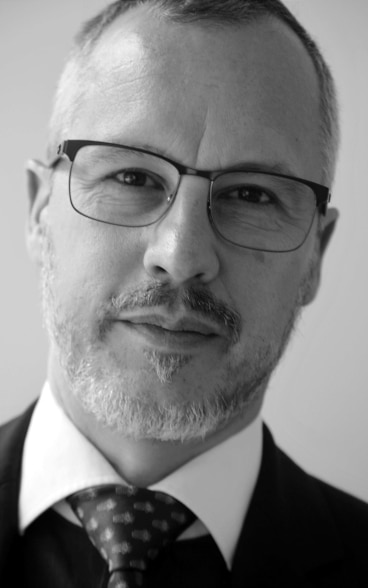
In an interview, Ambassador Simon Geissbühler, Head of the FDFA's Human Security Division (HSD), outlines Switzerland's role as chair of the ICoCA.
Switzerland helped found the ICoCA. What value added does it bring to the association?
Switzerland is internationally recognised as a neutral and legitimate partner to promote the application of international law. It has no specific interest in the private security sector and is therefore credible. As chair of the ICoCA's supervisory board, Switzerland is well placed to encourage dialogue between civil society organisations, private businesses and states. It has always succeeded in finding compromise and in moderating discussions between members.
Let's look back at the past ten years: What challenges has the ICoCA had to face and what topics will the association focus on in the next ten years?
The greatest challenge was to create a management and monitoring mechanism for the Code of Conduct that included all parties. This has now been achieved. 100 private security companies hold ICoCA membership, of which 30 are already ICoCA certified; the remaining 70 are in the process of being certified. This number has risen in recent years, but it is important, of course, that more companies become ICoCA members and work towards certification.
We need to work together with the clients of private security companies, such as commodity traders and ensure that they integrate the International Code of Conduct for Private Security Service Providers into their recruitment processes. COVID-19 has also affected the private security service sector and several companies are under great financial pressure. We will be able to assess the impact on the private security service sector and the consequences for human rights conditions in the coming months.
Serious consideration precedes every action of the FDFA. How is support for the ICoCA incorporated into Swiss foreign policy?
Commitment to peace and security is a top priority in Switzerland’s Foreign Policy Strategy 2020–23. Support for the ICoCA is consistent with commitment to the universal protection of human rights that is also enshrined in the Federal Constitution.
Our cooperation with the civil society and responsible stakeholders from industry in the context of the ICoCA is a tangible example of this.

